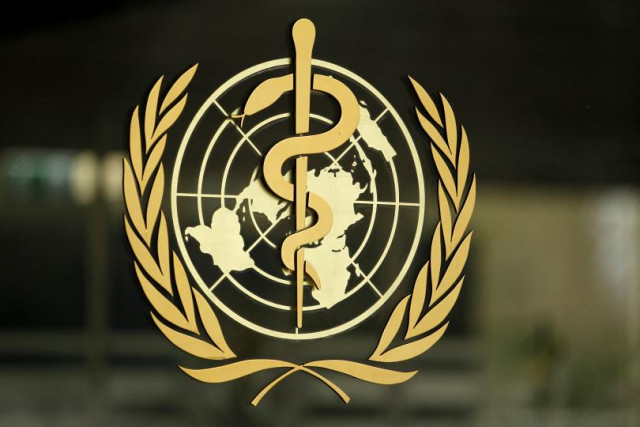UHC-BP to be tested in federal capital soon
Comprehensive health service package to be designed considering cost, burden of disease

World Health Organisation agrees to respond to emergencies more efficiently
PHOTO: REUTERS
This was said by Special Assistant to the Prime Minister on Health Dr Zafar Mirza while addressing the introductory session of a two-day national workshop on Universal Health Coverage, Benefit Package (UHC-BP) and Costing Model for Pakistan. Dr Mirza further added that it is critical to define the services which are needed to be covered through different levels of healthcare.
“A comprehensive package of health services will be designed, considering the burden of the disease, cost effectiveness of interventions and feasibility of delivery,” he added.
Universal Health Coverage is based on the principle that all individuals and communities have equal access to good quality healthcare, which is affordable for all. In this regard the government is making efforts to cover poor and vulnerable families through Sehat Sahulat Programme, said Dr Mirza.
National museum required in federal capital
The workshop was held in Islamabad and was organised to take stock of the progress in development of UHC-BP activities in Pakistan, capacity development on costing model for UHC-BP and finalise future actions for UHC-BP-DCP-3 activities.
Dr Mirza said, “The three dimensions of UHC are fulfilling the need for required services, population coverage and financial protection.”
DCP-3 defines a model concept of essential universal health coverage (EUHC) package. It provides a starting point for country specific analysis of priorities considering country specific cost structures, epidemiological needs and national priorities. DCP-3 is a valuable resource that provides a global synthesis of evidence on a range of health interventions.
On the occasion, London School of Hygiene and Tropical Medicine Professor Dr Anna Vassall said, “Pakistan is one of the fore-runners involved in defining the benefit package. DCP-3 is a global evidence base that reviews which health services bring the greatest health benefits to populations. DCP-3 evidence can inform the definition of the package but needs to consider local needs and circumstances. She welcomed the progress made so far and explained the costing steps involved in UHC-BP.
The expected outcomes of the workshop are to sensitise and enhance the capacity building of stakeholders for building UHC-BP and finalise the future course of action for UHC-BP/DCP-3 in the country.
The workshop was attended by representatives of federal ministries, provincial departments of health, World Health Organisation (WHO), health development partners, academicians, researchers and other stakeholders.
Published in The Express Tribune, July 3rd, 2019.



















COMMENTS
Comments are moderated and generally will be posted if they are on-topic and not abusive.
For more information, please see our Comments FAQ